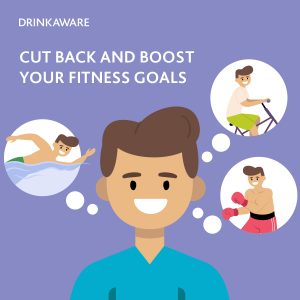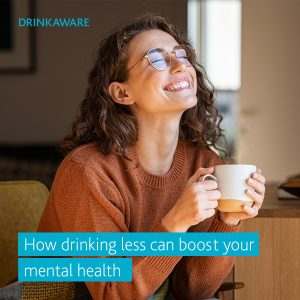How to stop drinking alcohol completely

There are many benefits of giving up alcohol, including better physical and mental health, better sleep, lower blood pressure, as well as a lower risk of heart disease, stroke and certain cancers.
Alcohol can increase the risk of high blood pressure and certain types of cancer, among other harms. In addition, the decision to stop drinking altogether may help you lose weight faster. This is because alcohol is high in calories and can interfere with the body’s metabolism.
Before you stop drinking, talk to your GP or local health professional if you think that you will find it hard to stop drinking or if you are worried that you may be at risk of alcohol dependence. Alcohol withdrawal symptoms can be serious.
Our support hub contains a list of national and regional alcohol services that can provide support, information and advice.
What happens when you stop drinking alcohol completely?
It’s normal to wonder how long it takes to feel the benefits of giving up alcohol. Fortunately, depending on your circumstances, you may be able to feel the benefits almost immediately.
As time goes on, you should see more benefits of giving up drinking. Below is a timeline of what some people might experience.
Within 24 hours
Within 24 hours of quitting alcohol, you may experience a range of physical and mental changes. These can include:
Blood sugar levels stabilise: Alcohol consumption can cause a spike in blood sugar levels, but within 24 hours of stopping, your blood sugar levels will start to stabilise.
Lowered risk of accidents: Alcohol consumption can impair your ability to think clearly and react quickly, increasing your risk of accidents. After 24 hours without alcohol, your risk of accidents will start to decrease.
It’s important to note that these changes will vary depending on how much alcohol you typically consume, how frequently you drink alcohol, and other individual factors. If you are experiencing withdrawal symptoms or are concerned about your health, it’s important to seek medical advice.
Within 1 Week
After one week of stopping drinking, the body experiences several positive changes. Here are some examples:
Better hydration: Alcohol is a diuretic, which means it increases urine output and dehydrates the body. After one week without alcohol, the body is better hydrated, and you may notice improved skin quality and less bloating.
Increased energy: Alcohol can be taxing on the body, and heavy drinking can lead to fatigue and low energy. After one week without alcohol, you may notice increased energy levels and feel more productive.
Improved mood: Alcohol can affect the brain’s neurotransmitters, leading to changes in mood and behaviour. After one week without alcohol, you may experience improved mood and feel less anxious or depressed.
Within 1 month
After one month of stopping drinking, the body can experience several positive changes. Here are some examples:
Improved liver function: Over time, liver function can improve. The liver is responsible for processing alcohol, and drinking can cause liver damage.
Healthier skin: Alcohol consumption can lead to dehydration, which can cause skin to appear dry and dull. Once you stop drinking alcohol completely, the body can better maintain hydration levels, leading to healthier-looking skin.
Weight loss: Alcoholic beverages can be high in calories, and heavy drinking can lead to weight gain. If you quit drinking, some people may experience weight loss, especially if they also make dietary changes and increase physical activity.
It is important to note that the exact changes that occur in the body may vary depending on individual factors such as the length and severity of alcohol use.
What are the long-term benefits of stopping drinking?

Giving up alcohol can have different results for everyone, depending on your circumstances. However, some of the most common benefits may include:
- Better mental health
- Better sleep
- Healthier weight
- More resilient immune system
- Reduced risk of certain cancers
- Improved memory and cognitive function
- Reduced cardiovascular risk
If you have researched all the advantages and decided you want to stay off alcohol or change your drinking habits, you might be wondering what is the best way to stop drinking for good. Our next section outlines advice on how to abstain from alcohol.
How to give up drinking
We always recommend consulting with a medical professional before making a major change to your lifestyle. Below is some general advice that may be helpful.
Understand your relationship with alcohol
Understanding your relationship with alcohol can be a critical step as it can help you identify the factors that contribute to your drinking behaviour and develop strategies to address them. Here are some ways in which understanding your relationship with alcohol can be helpful as part of this process:
- Recognise your triggers: These triggers could be anything from stress, anxiety, or social pressure, to boredom or loneliness. Once you recognise them, you can take steps to avoid them or find alternative ways to cope
- Identify patterns: You may notice that you tend to drink more in certain situations or at certain times of the day. This awareness can help you develop strategies to break these patterns
- Address underlying issues: Sometimes, drinking may be a symptom of deeper emotional or psychological issues such as depression, anxiety, or trauma. By understanding your relationship with alcohol, you can identify these underlying issues and seek professional help to address them
- Set realistic goals: The best way to change your drinking habits may be to set smaller goals, such as reducing your alcohol intake gradually or abstaining from alcohol for short periods of time. Don’t be discouraged if it takes time to stop drinking completely
Ask for support
Everyone has their own personal reason for making this change. Tell your family and friends that you’re trying to stop drinking alcohol and explain why. This way, you can share your successes with them, and they’ll understand why you’ve started turning down drinks or trips to the pub.
Frequently reminding yourself and the people close to you why you want to stop drinking can help keep you on track. It may even encourage someone else to give up alcohol
Avoid temptations
In the early stages, it’s a good idea to avoid situations where you may be tempted to drink.
This could mean opting out of the weekly pub quiz for a while, or if you tend to drink when eating out, try going to restaurants that don’t sell alcohol or simply volunteering to drive. Similarly, try to identify the times when you would usually drink and fill the gap with something else.
So if you would usually head to the pub after work on a Friday evening, you could organise to meet friends at the cinema. Or if you’re giving up alcohol in pursuit of a new, healthier you, you could join a regular exercise class or take a trip to the swimming pool to help you wind down.
Recognise and reward your progress
It’s important that you acknowledge the fact that making changes to your lifestyle can be difficult and that you reward yourself with something if you are making progress. It’s equally important not to be too hard on yourself if you slip up every once in a while. Here are some tips to keep on track:
- Keep a journal with your goals to record your progress
- Start slow, e.g., start with an alcohol-free week, then an alcohol-free month
- Treat yourself with the money you’re saving on alcohol. Use our Drinks Calculator to see how much you could save
- Celebrate your milestones with a reward
- Enjoy the benefits of being alcohol-free
Whether you’re cutting alcohol out of your life completely or cutting down gradually, you may notice a number of improvements to the way you look and feel. Among other things, you might find you have more energy, that you’re sleeping better, or that it’s easier to maintain a healthy weight.
In the long-term, you will also be helping to reduce your risk of developing alcohol-related health conditions including certain cancers, liver disease or heart disease and could lower your blood pressure.
Learn more about how to drink less alcohol.

Decide whether you want to give up or cut down on alcohol
If you want to stop drinking alcohol as part of a move towards a healthier lifestyle, cutting down on the amount of alcohol you drink can help bring lots of health benefits.
Reducing the amount you drink can also be an effective stepping stone to giving up alcohol completely in the future, if that is something you would like to do.
If you drink every night at home in front of the TV, start by designating a couple of days a week as alcohol-free days.
This can soon become a new habit and may encourage you to add even more alcohol-free days to the week.
Always remember the low-risk guidelines – no more than 11 standard drinks spread out over the week for women and no more than 17 standard drinks for men.
These drinks should never be saved up for one session and aim for at least two alcohol-free days in the week.
Frequently asked questions
How can I help someone stop drinking?
It can be difficult to approach someone you know who may have issues with alcohol abuse. Some ways you can help someone to stop drinking include:
- Find the right time to have the conversation
- Approach the conversation from a place of care and support
- Don’t pass judgements, rather give neutral, objective examples of why you have concerns
- Accept if they don’t want to continue the conversation
- Offer practical support, e.g., if they wish to stop drinking, you could offer to stop with them
- Let them know you’ll be there to help if they want to revisit the conversation
The HSE has a comprehensive list of support services available for family members who are concerned about a loved one’s drinking. Addiction treatment is available, as well as practical tips and confidential advice.
How can I avoid alcohol?
It can be difficult to avoid alcohol or events that involve alcohol. If you’ve made the decision to quit, it’s important to recognise that you may have to change some of your habits, at least temporarily.
This might mean going to a cafe instead of a pub, or inviting friends to your home to socialise. You may need to seek out like-minded people who are on the same journey as you for additional support.
Taking the decision to give up alcohol may require some adjustment and sacrifice, but the ultimate goal of a healthier you is worth it.

